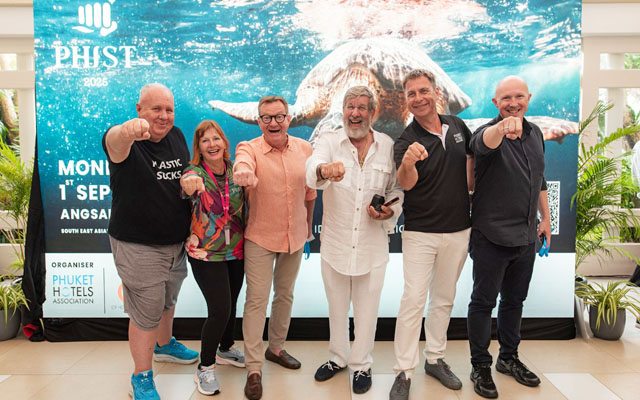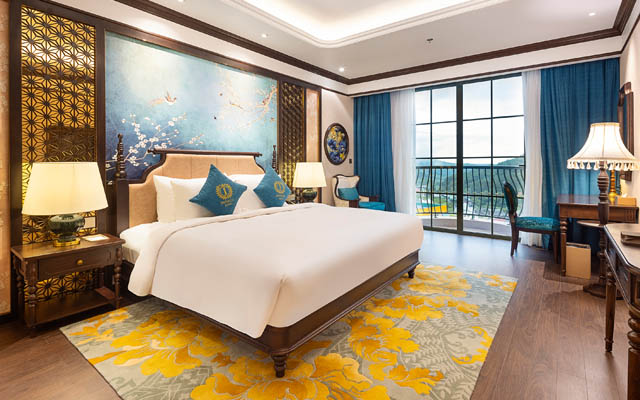This week at Asia’s largest sustainability forum for tourism, PHIST 2025, Phuket’s governor delivered a keynote reiterating calls for Special Economic Zone (SEZ) status, arguing that the island’s competitiveness depends on decisive action from both central and local government.
Governor Sophon Suwannarat said SEZ designation would allow Phuket to act more independently when budgeting for planning, infrastructure, and environmental regulation.

“For too long we have spoken about transport links between the airport and southern Phuket, yet nothing has happened. Without SEZ status, we cannot address these issues quickly or effectively. Our future competitiveness depends on it,” he stated at the PHIST 2025 press conference.
He also highlighted the fiscal imbalance holding back local development.
“Phuket generates more than 400 billion baht (US$12.33 billion) for the national economy each year, yet we are given only 170 million baht for local development. This imbalance is unsustainable. If Phuket is to continue to drive the country’s tourism revenues, we must be allowed to harvest the benefits of SEZ designation and control our own resources,” he emphasised.
Sophon painted a stark picture of mounting waste pressures. With 13 million visitors last year, Phuket generated 1,200 tonnes of waste per day, but can only process 700 tonnes. The remainder is dumped at a Saphan Hin landfill. An incinerator is in development and a waste-sorting facility is planned in Thalang to manage future volumes.
The growing local wastewater management crisis is equally urgent.
“We sell Phuket through its beaches, but once wastewater starts to flow into the sea, the island will no longer be appealing,” he warned.
Four new treatment plants are under construction, with five more in the pipeline covering Patong, Karon, and Choeng Thalay.
“The project will rely partly on local administrative budgets, but we must also seek support from the central government. This is an urgent issue – the system should be operational within a year, and, in my view, it is even more important than traffic infrastructure,” he stated.
Phuket is also bracing for a looming water shortage, with 16,000 new residential units set to open next year. To avoid drilling into the fragile local water table, the province is negotiating with Suratthani to pipe raw water from the Chiew Lan Dam via Krabi and Phangnga. Current stopgap measures, the governor cautioned, are unsustainable.
The governor also called for stronger protection of natural buffers.
At Layan Beach, a new community park will be established to expand green space and curb illegal construction.
“We need to conserve green forest zones to prevent mudslides and maintain climate resilience,” he said, pointing to mangrove forests along the Gulf of Thailand as vital breeding grounds for marine species.
On infrastructure, Sophon noted progress with a new motorway through Krathu and a road funded by Laguna Phuket group, while discussions continue with the Ministry of Commerce on a central-island monorail.
Hospitality leaders backed the governor’s urgency. William E Heinecke, chairman and founder of Minor International, echoed the call for Phuket to secure SEZ ratification.
“Phuket needs the ability to plan, fund, and implement its own infrastructure solutions. Without this, tourism and community life will both suffer,” he said.
Bill Barnett, managing director of C9 Hotelworks and founding organiser of PHIST, pointed to the need for broader community engagement.
“The Phuket Hotels Association now has 108 members, but hotels only account for one per cent of this island. The other 99 per cent is communities. We want to champion public–private partnerships that elevate the quality of life for local people,” he underscored.
PHIST 2025, held at Angsana Laguna Phuket, is now in its eighth year and drew a record 1,300 delegates for 25 sessions, sustainable fashion and gastronomy showcases, and best-practice awards.
With arrivals slowing and visitor preferences shifting, the forum highlighted how the private and public sectors must collaborate once again – as they did during Phuket’s Sandbox initiative – to reposition the island as a model for sustainable urban resort planning.
The event was organised by the Phuket Hotels Association, C9 Hotelworks and Greenview, with support from Pan Pacific Hotels, Winnow, Luxury Escapes, Tuu, Delivering Asia, QUO, and SaiYok Springs.


















